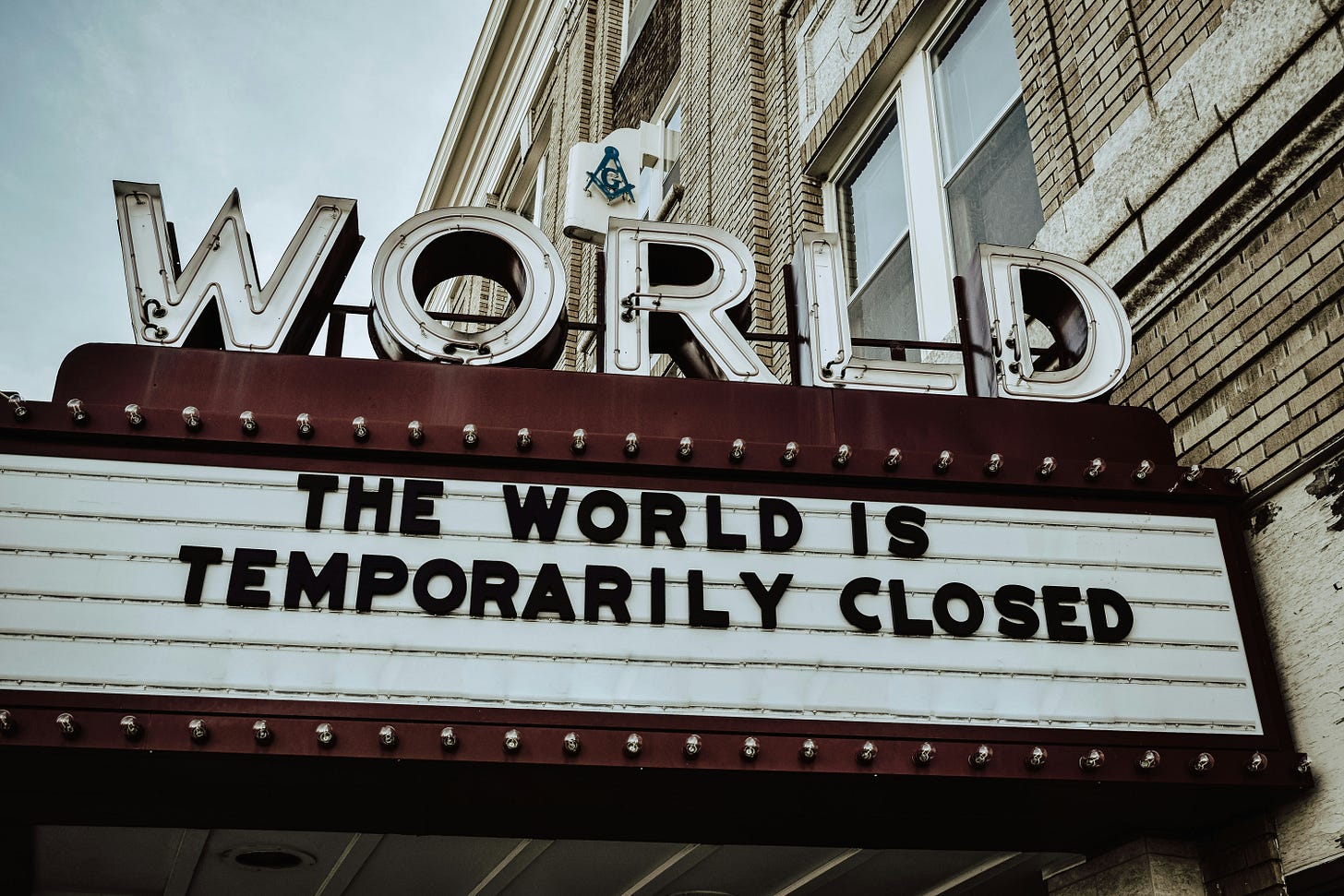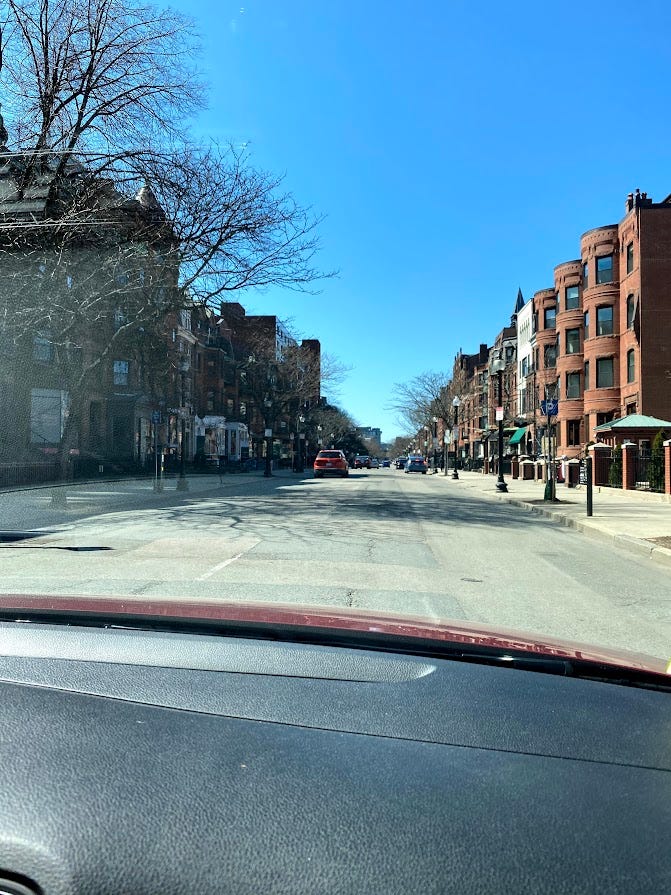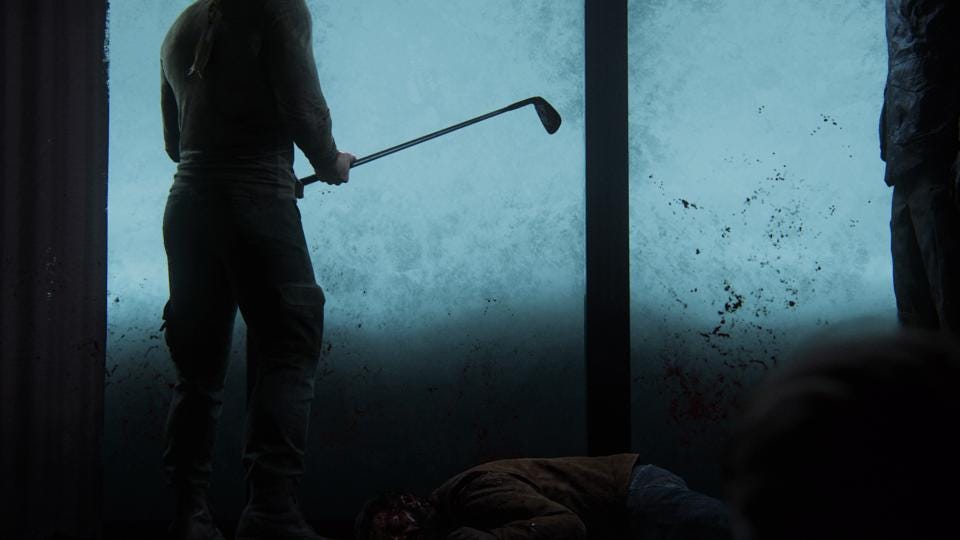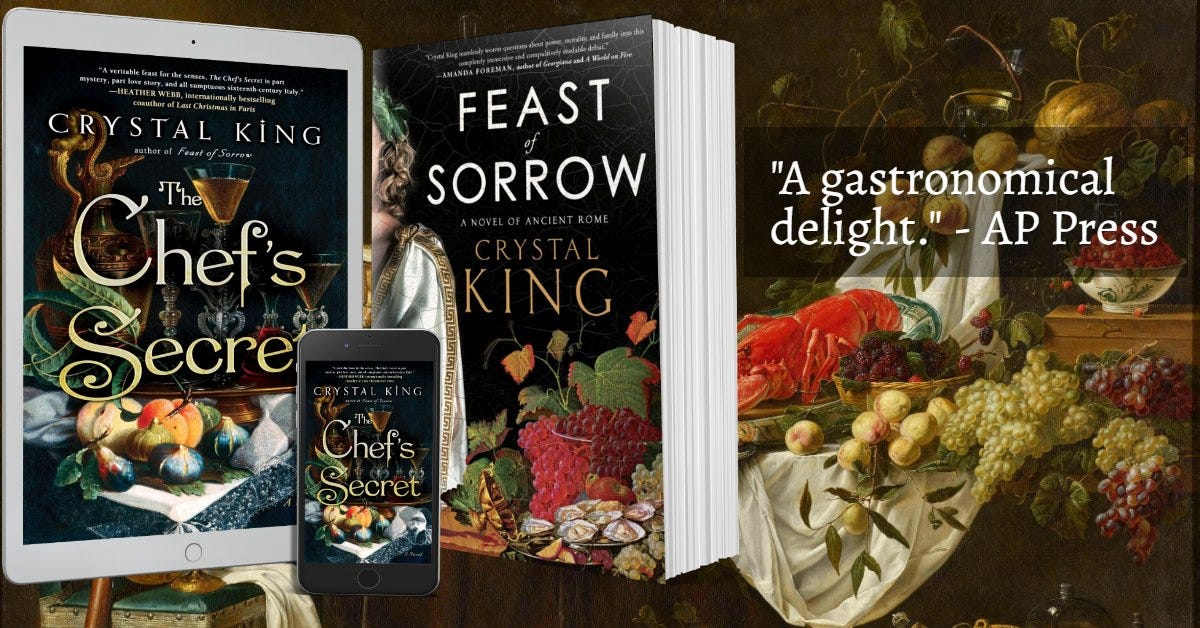
During the global health crisis1 that took the world by storm in 2020, the video game Last of Us Part II came out, and millions of pandemic-stricken people started playing the game about a world stricken by a pandemic. My husband had played Last of Us ages ago and began playing the second part right away, and much as I really love story-rich games, I couldn’t do it. I couldn’t play a video game about the world having ended from a virus while I was smack dab in the middle of one.

Fast forward to 2023. This spring, I played the first Last of Us game and enjoyed it. The writing is truly stellar, as you may have found if you decided to watch the HBO show when it came out last summer. My intention was to play the first game before that came out. I loved the television show, probably because of how perfect Pedro Pascal is in it.
Around the time I was ready to take up the second game, I had my breast cancer diagnosis, and the last thing I wanted to do was play another game with so much death on top of death. I waited until I was out of the woods with the cancer scare and picked up the game again in October.
If you’ve played Last of Us II, you know it’s a doozy, particularly the ending2. For me, it was profoundly disappointing. The unnecessarily extra-violent conclusion and the bleakness of the world within the game have been sitting with me for days.
So that’s all fine and dandy, but the thing is, I have also been working on my next novel, which, incidentally, is about nefarious gods stealing happiness from the world. As part of this story, I’ve decided to wade into something that I wasn’t sure I was ready for, and now that I’m already too deep in (I have a deadline in April!), I’m realizing that I’m not ready, not really—to write about the pandemic. But will I ever be ready?
The topic arose in 2021 and 2022 as we started to emerge from our houses and be in the world again: Should one write about the pandemic? I definitely didn’t want to read about it back then. And never in a million years did I think I’d be writing about it now. Why would I want to relive it?
But it’s a contemporary story, and to ignore it seemed strange. And aside from that, it’s a book about nefarious gods stealing happiness from the world. And if there is one thing that collectively stole happiness from most of the world in our time, that would be it.
So, for the last week or two, I’ve been diving deeply into the history of the COVID-19 pandemic. I have timelines for both the US and Italy, of when everything began to occur. The first deaths, the closing of airspace to China, the closing of clubs and theaters, then the closing of schools, then the closing of everything. The death count climbed and climbed (Jan 20, 2021, was the highest day globally, with over 18K deaths in 24 hours) into numbers unfathomable, numbers that eventually jaded us all with how many and how frequently they occurred. I’ve interviewed friends in London and Rome about their experiences because parts of the book are set in both of those countries. I’ve rewatched videos about Chinese police hauling families out of their homes and cars into quarantine3, about the hospitals full in Bergamo4, and later, the video of the nurse receiving the first vaccine5. Then, the disinformation that tore us all apart just when we needed to be together the most.
I had forgotten—or perhaps pushed out of my mind—just how bad it was.
Between The Last of Us Part II and researching this book, I have felt a heavy weight upon me. I am remembering so much of what it was like to be back in 2020 and 2021. The fear, the loneliness. The crying jags. The worry. Very early on in the pandemic, when we had only been locked down for maybe a couple weeks, my sister called from across the country to tell me that her then 22-year-old son said he was sick and he was going to get tested at a drive-thru clinic. Later on, I learned he was feigning the illness to get out of having to go to work that day, but I was out of my mind with fear and worry and had a full-on crying meltdown with my boss in Ireland over Zoom.
I have journals from those years, and frankly, I’m a bit scared to go back and look at them, to feel that sadness and horror again. To remember the weirdness too: Not getting my hair cut for nearly two years. Not eating popcorn because what if we broke a tooth and had to go to the dentist (and be around someone staring into our mouths?!). Washing all our groceries down with Clorox wipes (if we could find them). It’s stunning to me that it was only a couple of years ago. It feels so distant, and yet not, not when I’ve known four people in my close circle who have had COVID in the last few weeks. But their bout with the virus was mild, not that different than a cold. But long Covid is still a thing, something that can devastate the lives of people who contract it.
All this talk of the virus and the end of the world has been swirling so much around me. I find it awful and uncomfortable, but aside from being necessary for this novel (I actually think the feeling the game left me with set me up to be better in the frame of mind I needed to write about the despair of COVID), I am also finding that it is useful for my well-being in another way. It has to do with the Latin phrase, Momento Mori, which means “remember you must die.”
The ancient Stoics believed that one must contemplate death so one can better appreciate life. I mentioned this briefly in my aforementioned blog post about my cancer diagnosis.
I have a momento mori that I practice every week when I do my weekly review. It’s a list that I keep of all the awful things that have happened to me on my cancer journey, from the moment I found out, to the challenging side effects of the after-treatment. I never want to forget how bad it was, because I want to always be working toward a healthier life. If I forget, I may slide into unhealthy habits once more, which would greatly be to my detriment.
Remembering the worst of the pandemic has been a momento mori of sorts. Of how close we all were to death in some way. I know people who were hospitalized. I know so many people who lost loved ones. And I’m sure I wasn’t alone in wondering if the virus was going to come for me, too.
So, while I’m not really glad to be diving deep down into the hole of our previous pandemic life, I also find that I’m grateful because it’s one more reminder of all the really good things I have going on in my life today, and how much better this today is than the majority of the days of 2020 and early 2021.
I’ll round this out with a bit of momento mori art, which was common in the Renaissance. This is from the Farnese Book of Hours by the miniaturist Giulio Clovio, who was considered to be the Michelangelo of miniatures.
The moral of this beautiful and yet haunting image is clear. At some point, Death comes for us all.
Rather recently, the media stopped calling it a pandemic and now refers to it as “the global health crisis” which I find interesting. Why? Maybe because it won’t get stopped by keyword blockers in search and social like “pandemic” might?
This was an extremely divisive game. Despite each main character having a redemption arc, the ending left me completely and utterly unsatisfied. Don’t get me going about the Joel stuff, or how much I hated Abby pretty much from the first moment she stepped foot on my screen. I didn’t need a happy ending, but dang, I would have appreciated something very different than this one.
I remember the horror when I first saw this video three years ago.
And this video of the Bergamo hospitals full.
WHAT’S BRINGING ME JOY THIS WEEK
I hung out with
and Colwill Brown to chat about developing climaxes and endings in novels. You can check out the podcast here.This love between a rooster and his chicken wife is the cutest thing you’ll see all day. Even just thinking about it now makes me turn into a puddle.
This colorized version of part of Metropolis, a silent film from 1927 by Fritz Lang. It really is incredible.
My favorite Italian band, Subsonica, has a new album out. Yay!
Let’s talk about the good stuff. If you love food and love Italy, and haven’t read THE CHEF’S SECRET or FEAST OF SORROW, click the links to learn where to buy your copy! 🍒🍗🍷
You can also follow me in these places too: Website | Instagram | Facebook | Threads







